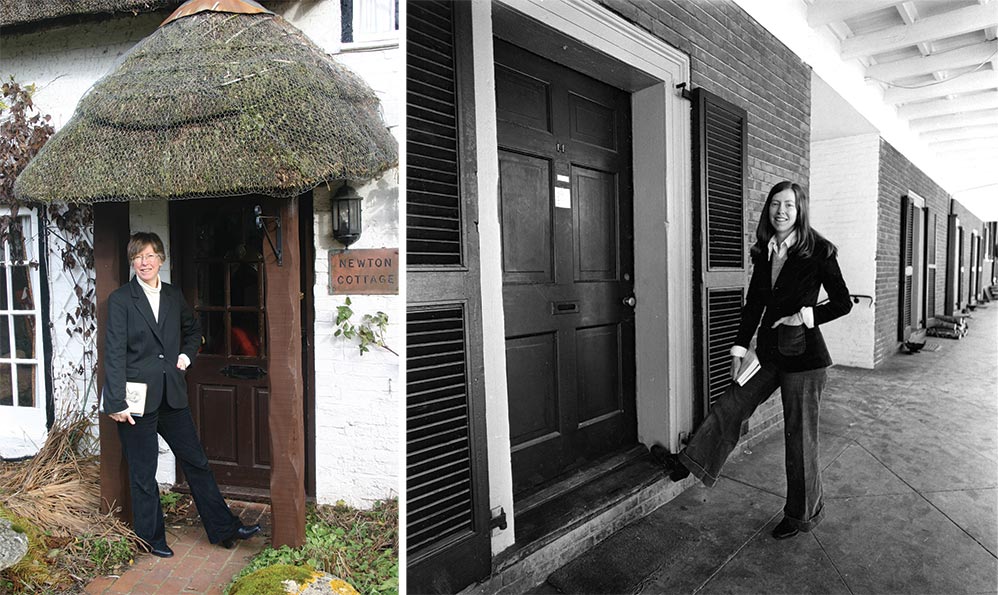1977: Ms. Rhodes Scholar

(right) Catherine Burke Sweet received a Rhodes Scholarship in 1977. (left) Sweet outside her 18th-century thatched cottage, where she is writing her first novel.
Black and white photo by Ed RoseberryThe first year Rhodes Scholarships allowed women to apply, Catherine Burke Sweet (Col ’77) was awarded one. Rhodes Scholars were nothing new to the University; Sweet was the 38th of the now 46 UVA alumni who have been honored with the scholarship. Then—as now—the University produced more Rhodes Scholars than any other public university.
In 1977, Sweet was an Echols Scholar majoring in government and foreign affairs and specializing in Middle Eastern studies. She ran for the women’s track club, fenced, played squash and was a member of the rifle club. In the yearbook, she is quoted as saying that she wanted to work in policy analysis and that she’d applied for the scholarship “as a matter of principle” because she felt that if strong female candidates didn’t apply, “critics of opening up the competition to women would be vindicated.”
Sweet studied at Oxford University in England on her scholarship, where she received a master’s degree and a doctorate in international relations. “Being exposed to a whole world of different people, different cultures, different values and beliefs made me realize the limitations of a purely American life,” Sweet says. “As a result, I’ve been able to pursue a truly international career.” Sweet’s career in public affairs, corporate communications and public relations took her all over the world. She was head of public affairs for the London Stock Exchange and head of parliamentary affairs for the British Bankers Association.
These days, instead of influencing policy, Sweet prefers to inspire the next generation. She is a senior lecturer at Southampton Solent University in the U.K. Being a Rhodes Scholar didn’t just enhance her career, it changed the direction of Sweet’s life. “I am now bilingual,” she says. “I speak English and American, and think like a European.”